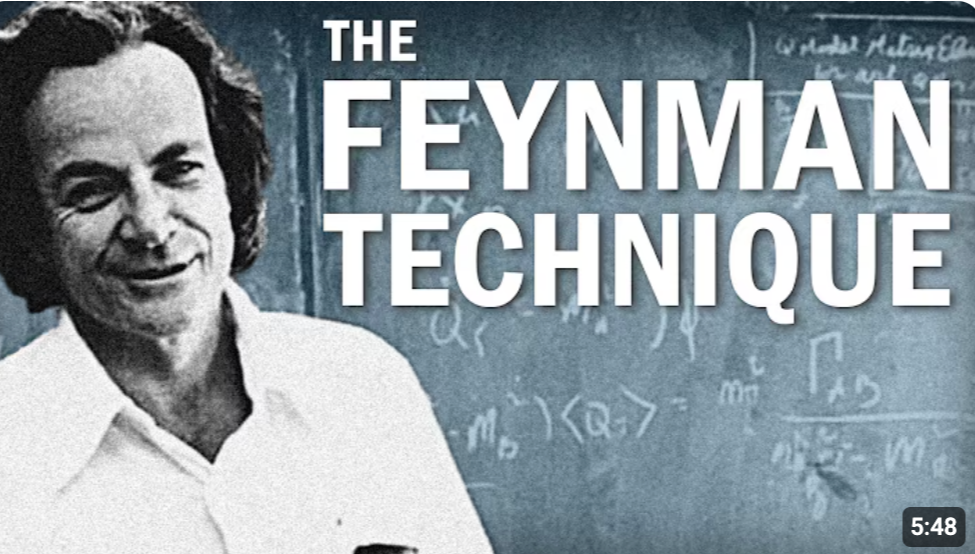ทุกวันนี้โลกของเทคโนโลยีได้ก้าวไกลอย่างรวดเร็ว ทำให้หลายๆ คนสนใจศึกษาเกี่ยวกับคอมพิวเตอร์และเทคโนโลยีมากขึ้น แต่การตัดสินใจเลือกเรียนสาขาที่ใช่ อาจไม่ง่ายอย่างที่คิด เมื่อทั้ง “วิศวกรรมคอมพิวเตอร์” และ “วิทยาการคอมพิวเตอร์” ดูเหมือนจะมีความคล้ายคลึงกันในแง่ของการศึกษาและทักษะที่ได้ แต่ก็มีความแตกต่างที่สำคัญอยู่ ที่เราต้องเข้าใจเพื่อหาทางที่เหมาะสมกับตัวเอง วิดีโอนี้จะพูดถึงความแตกต่างทางวิชาและการเรียนรู้ในแต่ละสาขา รวมถึงคำแนะนำจากนักศึกษา เพื่อเป็นแนวทางสำหรับผู้ที่สนใจในโลกของคอมพิวเตอร์
1.หลักสูตรปีแรก: การเรียนวิชาพื้นฐาน
• วิศวกรรมคอมพิวเตอร์ (Computer Engineering)
ปีแรกนักเรียนในสายวิศวะจะได้เรียนพื้นฐานในด้านวิศวกรรมทั่วไปที่รวมถึงการวาดแบบ (Engineering Drawing) ซึ่งเป็นสิ่งที่จำเป็นสำหรับวิศวกร ในบางคณะอาจมีการเรียนการเขียนโค้ดพื้นฐานเพิ่มเติม โดยจะเริ่มต้นที่การเขียนโปรแกรมขั้นพื้นฐาน
• วิทยาศาสตร์คอมพิวเตอร์ (Computer Science)
นักศึกษาสายวิทยาศาสตร์คอมพิวเตอร์จะเรียนพื้นฐานวิทยาศาสตร์กว้างๆ ครอบคลุมทั้งฟิสิกส์ เคมี ชีววิทยา และคณิตศาสตร์ ที่จำเป็นสำหรับการวิเคราะห์เชิงทฤษฎี พร้อมกับเสริมทักษะทางการคิดวิเคราะห์เชิงวิทยาศาสตร์ (Scientific Thinking)
ความแตกต่าง: สายวิศวกรรมเน้นทักษะการออกแบบเชิงวิศวกรรมและพื้นฐานการเขียนโค้ด ส่วนวิทยาศาสตร์คอมพิวเตอร์เน้นการวิเคราะห์ทฤษฎีทางวิทยาศาสตร์ ซึ่งส่งผลต่อแนวทางในการเรียนต่อในปีถัดไป
2.การเน้นที่เนื้อหาด้านซอฟต์แวร์และฮาร์ดแวร์
• วิศวกรรมคอมพิวเตอร์
เมื่อเข้าสู่ปีที่สอง นักศึกษาจะเริ่มเน้นไปที่ฮาร์ดแวร์และซอฟต์แวร์ที่เชื่อมโยงกับฮาร์ดแวร์ ซึ่งรวมถึงการเรียนรู้การทำงานของระบบคอมพิวเตอร์ตั้งแต่ชิ้นส่วนเล็กๆ เช่น Logic Gates ไปจนถึงการออกแบบสถาปัตยกรรมระบบ (System Architecture)
• วิทยาศาสตร์คอมพิวเตอร์
ปีที่สองของสายวิทย์คอมพ์จะเน้นที่ซอฟต์แวร์เป็นหลัก เช่น การเขียนโปรแกรมและแนวคิดเกี่ยวกับการจัดการข้อมูล (Data Structures) รวมถึงการประยุกต์ใช้คอมพิวเตอร์ในสถานการณ์ต่างๆ เช่น Business Case
ความแตกต่าง: วิศวกรรมคอมพิวเตอร์จะเจาะลึกทั้งซอฟต์แวร์และฮาร์ดแวร์ โดยให้ความสำคัญกับการทำงานร่วมกันของฮาร์ดแวร์และซอฟต์แวร์ ส่วนวิทยาศาสตร์คอมพิวเตอร์มุ่งเน้นที่การพัฒนาซอฟต์แวร์และการวิเคราะห์ข้อมูลเชิงคอมพิวเตอร์เป็นหลัก
3.ความแตกต่างในวิชาคณิตศาสตร์
• วิศวกรรมคอมพิวเตอร์
มีวิชาคณิตศาสตร์ที่ครอบคลุมในเรื่องของตรรกศาสตร์ (Logic) และคณิตศาสตร์เชิงวิศวกรรม โดยเน้นที่การใช้คณิตศาสตร์ในด้านการออกแบบฮาร์ดแวร์และซอฟต์แวร์ รวมถึงการคำนวณที่ซับซ้อน เช่น การคำนวณเชิงเส้น (Linear Algebra)
• วิทยาศาสตร์คอมพิวเตอร์
มุ่งเน้นการใช้คณิตศาสตร์เพื่อการคำนวณข้อมูลและอัลกอริทึม โดยมีวิชาคณิตศาสตร์ที่เน้นในด้านการใช้เหตุผลตรรกะ รวมถึงการคำนวณที่เน้นการใช้ตัวเลขและการประมวลผลข้อมูล
ความแตกต่าง: วิศวกรรมคอมพิวเตอร์ใช้คณิตศาสตร์ในการออกแบบและคำนวณที่เกี่ยวข้องกับฮาร์ดแวร์ ส่วนวิทยาศาสตร์คอมพิวเตอร์เน้นไปที่การใช้คณิตศาสตร์เพื่อประมวลผลข้อมูลและอัลกอริทึมที่เกี่ยวข้องกับซอฟต์แวร์
4.วิชาเฉพาะทางและเน้นที่ความถนัด
• วิศวกรรมคอมพิวเตอร์
วิชาที่นักศึกษาวิศวกรรมคอมพิวเตอร์ชอบ เช่น วิชาที่เกี่ยวกับการออกแบบระบบ (System Architecture) และการทำงานของระบบปฏิบัติการ (Operating Systems) เนื่องจากได้เรียนรู้การทำงานของระบบตั้งแต่รากฐานจนถึงการเขียนโปรแกรมควบคุมฮาร์ดแวร์ต่างๆ
• วิทยาศาสตร์คอมพิวเตอร์
วิชาที่นักศึกษาวิทยาศาสตร์คอมพิวเตอร์ชอบ เช่น การเรียนด้าน AI และการประมวลผลภาษาธรรมชาติ (Natural Language Processing) ที่ใช้ทักษะทางซอฟต์แวร์ในการสร้างโมเดลการเรียนรู้และการใช้งานโปรแกรมที่มีความฉลาด
ความแตกต่าง: วิศวกรรมคอมพิวเตอร์จะเน้นวิชาที่เกี่ยวกับการทำงานของระบบฮาร์ดแวร์และซอฟต์แวร์ที่ประสานงานกัน ส่วนวิทยาศาสตร์คอมพิวเตอร์จะเน้นวิชาที่เกี่ยวกับการวิเคราะห์ข้อมูลและการพัฒนาระบบซอฟต์แวร์ที่ใช้ในการประมวลผลและวิเคราะห์ข้อมูล
สรุปภาพรวมความแตกต่าง
• วิศวกรรมคอมพิวเตอร์: เน้นไปที่ฮาร์ดแวร์และการออกแบบระบบที่เชื่อมโยงกับซอฟต์แวร์ เพื่อให้เข้าใจการทำงานของเครื่องคอมพิวเตอร์อย่างละเอียด เหมาะสำหรับผู้ที่สนใจในระบบที่ต้องประสานงานกันระหว่างฮาร์ดแวร์และซอฟต์แวร์
• วิทยาศาสตร์คอมพิวเตอร์: มุ่งเน้นด้านซอฟต์แวร์และการวิเคราะห์ข้อมูลเป็นหลัก โดยมีความรู้พื้นฐานด้านคณิตศาสตร์และการวิเคราะห์เชิงวิทยาศาสตร์ เหมาะสำหรับผู้ที่ต้องการพัฒนาทักษะการเขียนโปรแกรมและทำงานด้านซอฟต์แวร์
________________________________________________________________________________________________________________________________________________________________
Today, technology is advancing quickly, and many people are interested in studying computers and technology. However, choosing the right field, like “Computer Engineering” or “Computer Science,” isn’t as simple as it might seem. While both areas may look similar in terms of what you study and the skills you learn, they have important differences. This article will help you understand these differences to find the best path for you, with insights from students to guide those interested in the computer field.
1.First-Year Basics
• Computer Engineering: In the first year, engineering students study general engineering basics, such as engineering drawing, essential for engineers. Some courses might include basic coding as an introduction to programming.
• Computer Science: Computer science students cover broad science basics, including physics, chemistry, biology, and math, which are essential for theoretical analysis and scientific thinking.
Difference: Computer Engineering focuses on engineering skills and basic coding, while Computer Science emphasizes scientific analysis, influencing future studies in each field.
2.Focus on Software and Hardware
• Computer Engineering: By the second year, students focus on both hardware and software related to hardware, learning about computer systems from small parts like logic gates to system architecture design.
• Computer Science: In the second year, computer science students focus mainly on software, such as programming and data structures, and how computers are used in various situations, like business.
Difference: Computer Engineering delves into both software and hardware, emphasizing how they work together, while Computer Science focuses more on software development and data analysis.
3.Math in Each Field
• Computer Engineering: Covers math topics like logic and engineering mathematics, using math for designing hardware and software, including complex calculations such as linear algebra.
• Computer Science: Uses math for data calculations and algorithms, with courses focused on logic and data processing.
Difference: Computer Engineering uses math for hardware design and calculations, while Computer Science focuses on using math for data processing and software-related algorithms.
4.Specialized Courses and Interests
• Computer Engineering: Popular courses include system architecture and operating systems, where students learn to work with systems from the basics to programming hardware control.
• Computer Science: Students enjoy courses like AI and natural language processing, using software skills to create intelligent models and applications.
Difference: Computer Engineering focuses on systems that combine hardware and software, while Computer Science emphasizes data analysis and software development.
Summary
• Computer Engineering: Focuses on hardware and system design that integrates with software, ideal for those interested in how hardware and software work together.
• Computer Science: Emphasizes software and data analysis, with a foundation in math and scientific analysis, ideal for those interested in programming and software development.










